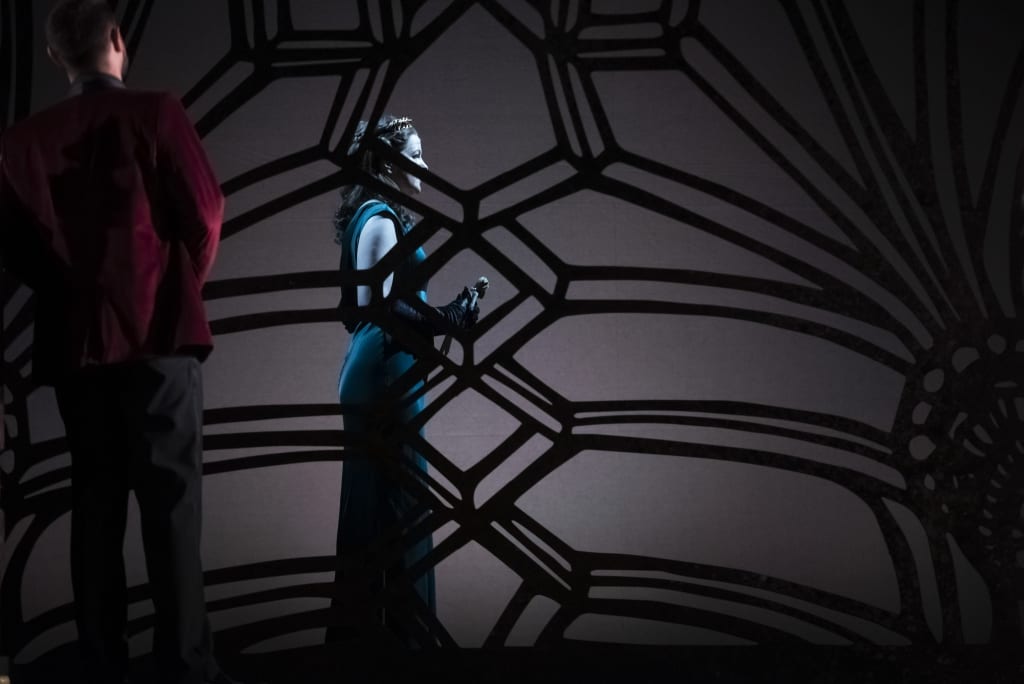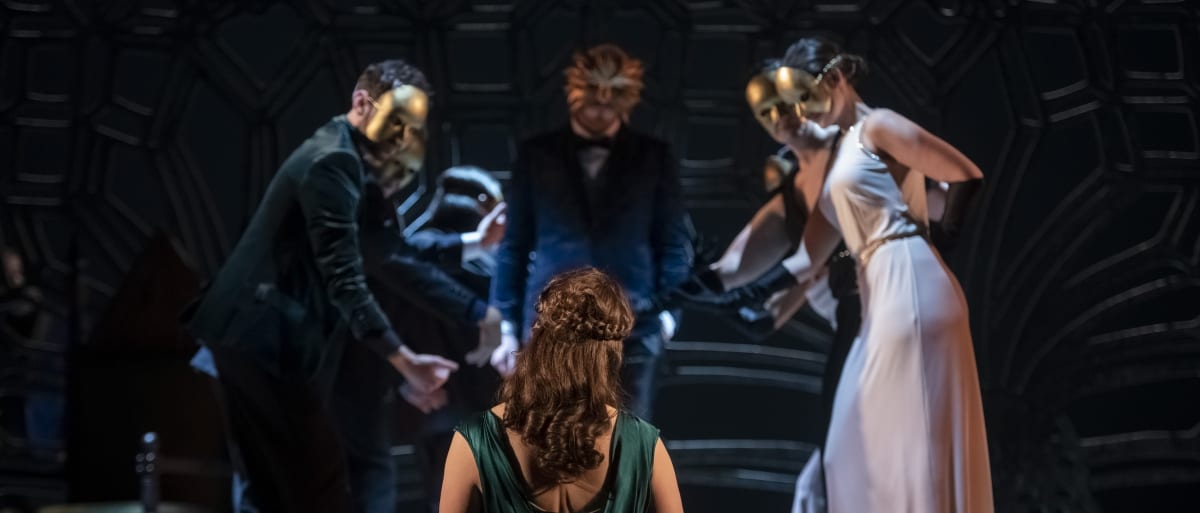Anna Bolena is one of the great operas of the Italian romantic era. Historically, it was innovative both musically and dramatically. Among other reasons for its success was the composition by Donizetti of the role of Percy for the voice of Giovanni Batista Rubini, who was pretty much the Caruso or Pavarotti of his day and the first tenor to use the kind of ringing upper register and chest voice that we are used to and expect of tenors these days. Anna Bolena was written for and first played by Giuditta Pasta, whose vocal and dramatic gifts were evoked by Maria Callas. Even more importantly, Donizetti, whose first really great and international success this opera became, began to play with dramatic declamation and more highly wrought use of the music for eliding into the big set pieces, so that the drama became more intense and continuous.
The new production of this opera at the Longborough Opera Festival is a real treat. For one thing, the opera is still so rarely performed that it is simply a pleasure to be able to hear it sung through in an intelligent performance. Lacking the budgets for the kind of spectacle that this Tudor age story can elicit, director Jenny Miller and designer Nat Gibson have come up with a show in contemporary garb but one that also suggest the glamour and the artificiality of Henry VIII’s court. The golden masks that are worn by the performers at various times make their symbolic point about the politics of the era and ours. But above all, the singing rises to the requirements of the score.

Linda Richardson sings every note beautifully and expressively, and she clearly understands her character. Her big moments are finely drawn, including the wonderfully dramatic duet with Jane Seymour early in Act II and her very moving mad scene at the end. She is convincing as the scorned, despairing and tragic Anna. The women, indeed, are all very fine and contribute greatly to the strengths of this production. Caryl Hughes as Giovanna Seymour and Carolyn Dobbin as Smeton were both appealing. Praise also must be given to Alex Haigh’s Hervey and Matthew Buswell’s Rochefort. Lukas Jakobski was vocally and dramatically exceptional as Henry VIII, easily suggesting every nuance of the character’s tyrannical nature, his great sense of his entitlement and power, and his detestation of Anna as informed by his sexual passion for Seymour. The first duet with Seymour was especially strong and memorable. His is a strong and rather beautiful deep voice and he is reappearing at Longborough this summer as the Il Commendatore in Don Giovanni.
The drama of the opera is clearly and simply conveyed throughout. Conductor Jeremy Silver displays a strong grasp of both the detail and the overall arch of the score; he supports his singers with great sympathy and flair; and his cast are musically adept at the difficult coloratura required, as well as the dramatic shifts in melody and rhythm, and the true richness of this score. Musically this is a very satisfying evening and one that does justice to a truly important score. This production may be a bit low key compared to the famous Visconti revival with Maria Callas in the title role but it is certainly worthy of this truly brilliant work. (And may I recommend, while I am at it, that you go to Amazon and try to get the performance captured live at La Scala with Callas on CD; and also the very fine production with Anna Netrebko as Bolena from Vienna on DVD or BluRay?) If you do not know it already, this is an opera to explore and savour.

